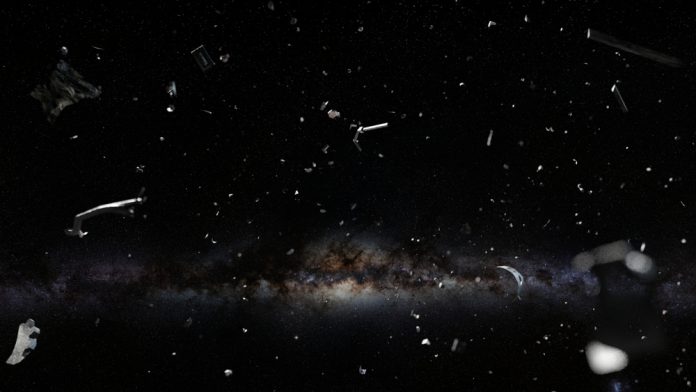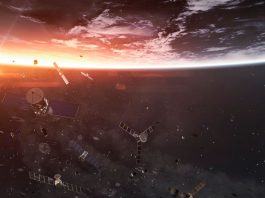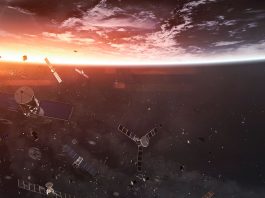The European Space Agency (ESA) is in talks with Elon Musk’s SpaceX about the possibility of the company joining an international charter designed to reduce a growing swarm of space debris.
The 22-nation agency is spearheading one of several other efforts to reduce the mass of space debris swirling around the planet from past missions, which poses a risk to active satellites.
ESA’s Director General Josef Aschbacher said 110 countries or entities have joined ESA’s Zero Debris charter, which aims to stop the generation of new orbital garbage by 2030.
When asked if Musk’s space venture had signed up for the charter, Aschbacher commented: “Not yet, but we are in discussion with them.
“This charter keeps evolving, and we will keep raising the topics because they are fundamental.”
SpaceX’s satellites in orbit continue growing
According to the United States Space Force, of the roughly 10,300 active satellites in orbit, roughly 6,300 are part of SpaceX’s fast-growing Starlink constellation.
China has begun to launch constellations of its own to compete with Starlink, as has Amazon, which expects to launch over 3,000 satellites for its Kuiper constellation this decade.
Amazon has signed up for the Zero Debris Charter, leaving SpaceX free to play a crucial role in tackling the issue of space debris.
Proposals to reduce the amount of debris in space
According to Jonathan McDowell, a Harvard astronomer who tracks these objects, 18,897 pieces of trackable space debris are in orbit.
Space debris and junk are often used interchangeably, but some consider space junk to include inactive payloads, rocket bodies, debris, or errant shards of broken satellites.
There are no international laws on debris, but countries and space agencies have begun devising proposals and national rules for tackling the problem in recent years.
“We are not a regulatory body; we are a technical space agency,” Aschbacher said.
“However, the fact that we have put the charter around the table, which was elaborated on with all the other partners, and that they signed up for it is very encouraging.”
SpaceX is subject to orbital debris requirements from the US Federal Communications Commission.
A Starlink satellite is required to deorbit — or burn up in Earth’s atmosphere — within five years of the end of its life.
“I think it’s very important to have industry publicly commit to this sort of initiative, so I’m glad to know SpaceX is considering it,” McDowell concluded.









